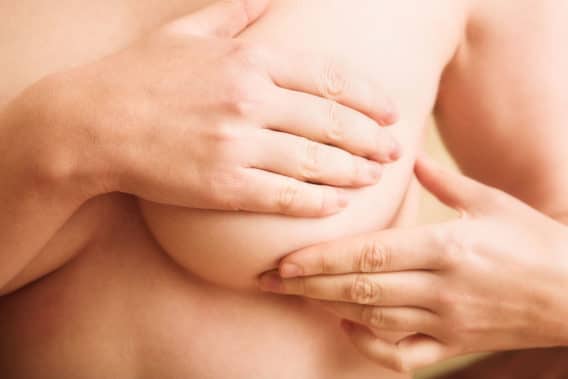
Is Breast Cancer More Common During Menopause? | 8 Risk Factors
So many of you have asked us if breast cancer is more common during menopause. And the answer is yes, because one of the highest risk factors for a breast

So many of you have asked us if breast cancer is more common during menopause. And the answer is yes, because one of the highest risk factors for a breast

Recommended books? Yes, indeed. When you’re learning about peri- and post-menopause some of your BFF’s are books about menopause. The truth is, not so long ago, you would have been

When we talk about the symptoms of early menopause we need to differentiate it from usual menopause. Why? Because they present a different set of circumstances. What is menopause? Menopause

Yes, there’s a recognised biological process known as male menopause or andropause. Who knew, right? However, it should be noted that male menopause is controversial, and not all experts believe

Let’s talk about menopause and alcohol for a few minutes. One of the things we hear often from women who want help with perimenopause / menopause symptoms is: “I can’t
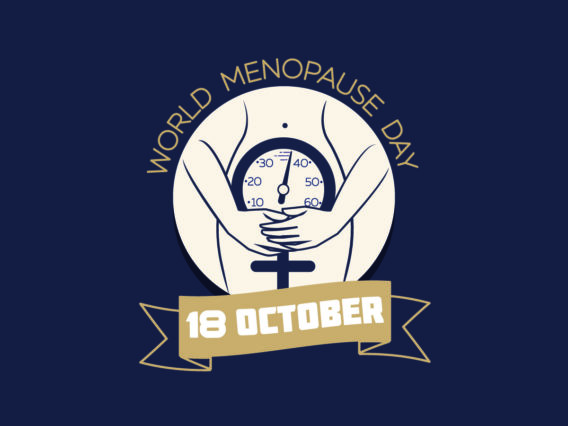
World Menopause Day (WMD) falls on October 18 every year. Its goal, along with the entire month of October being World Menopause Month, is to raise awareness of menopause. And
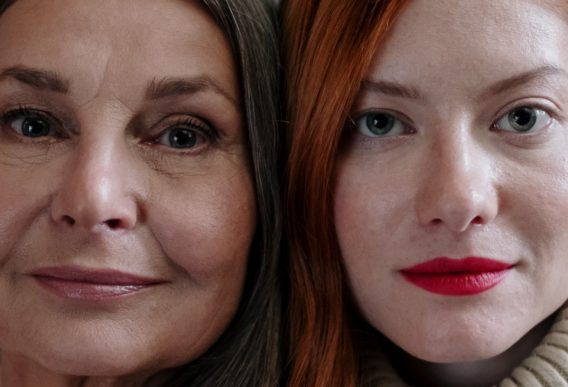
October is Menopause Awareness Month with Menopause Awareness Day falling on the 18th. It flies the flag women and embraces their health and wellness as they grow older. The initiative

I am a woman, hear me ROAR! Speaking out about peri and post-menopause. And mood swings, lack of libido, dry vagina’s and finding your power because these things are real!

Community. Interaction. Human to human contact. Did you know these things are key to our health and happiness and how we go through life? In fact, women’s ageing researchers say
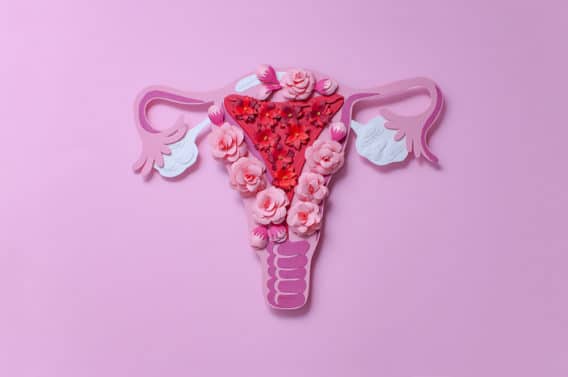
According to Ms Google, a lot of women search the question ‘when does menopause begin?’ And Ms G knows everything, right? Well, maybe not quite everything, but pretty close! So

Contrary to what the image of a post-menopausal woman typically used to be, this generation of women are standing up, taking charge and inspiring men and women of all ages all over the world.
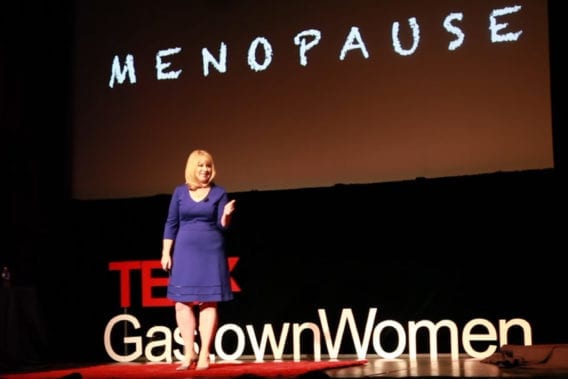
Listening to this TEDx talk – Menopause is Misunderstood – feels like hearing our MenoMe® message being played back to us. The speaker is Shirley Weir, the founder of Menopause Chicks.

Books about menopause. They’re one of our greatest resources. Even in the digital age books stand tall. While some people may have turned to eBooks and Kindle, for many nothing

Let’s look at the history (and stigma) of menopause. Have you noticed how often the word is swept under the carpet? It’s a pretty ugly word – the Chinese term

For those of us who experience symptoms of perimenopause / menopause and post-menopause, life can throw some curveballs at times because the symptoms can be a literal pain in the
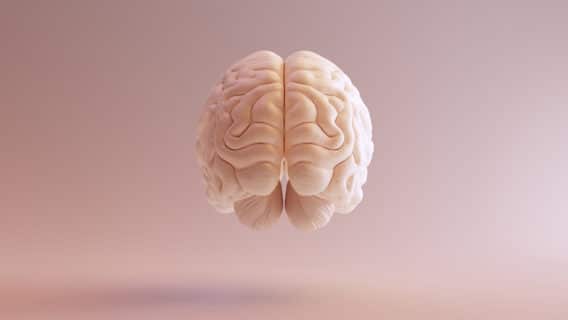
The brain and menopause. This is a very important subject as peri/menopause and diminishing estrogen can have a profound effect on our brains. Brain Changes During Menopause You might have

Recently, I was sitting having a coffee while I waited for my car to get serviced. So I opened a book that’s been on my bedside table waiting to be

How will post-menopause change your life? We’re so glad you asked. Because post-menopause leads to several physiological changes and there are some health factors it’s smart to be mindful of.

When we published 3 Signs That Point To You Being In Perimenopause, so many people read it we realised you’re starved of information. We get it. We totally do, and

Have you heard of the sandwich generation? It’s us, lady. We are the sandwich generation. Well, a lot of us anyway. 40 To 60-Year-Olds The ‘sandwich generation’ refers to those

Let’s talk. I’m serious, this is a call out to all of you wonderful meno women. It’s time to open up and start talking about menopause. The Studies Back It Up

A new study tells us that women feel less stress as they grow older. Isn’t that good news? Hallelujah! Sayonara stress. 👋 We won’t miss you. That may sound a little bit
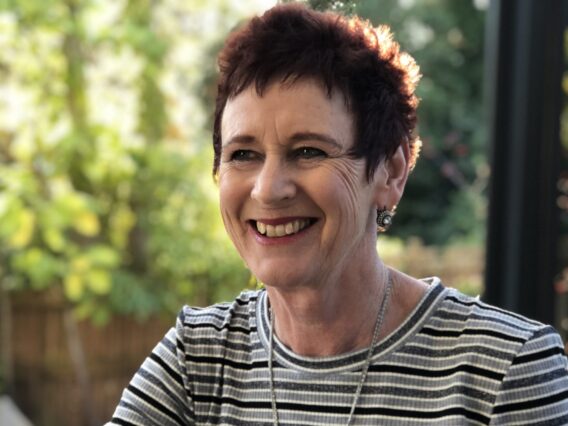
Pregnancy at work I’ve gone through both pregnancy and menopause at work and I can’t help but reflect on the differences between the two experiences. Apart from the fleeting shadow
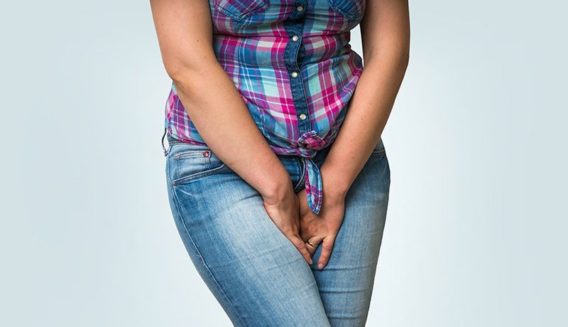
I know you probably don’t want to talk about incontinence. In fact, it’s possibly the last thing you want to talk about – but during menopause it really can be
At MenoMe®, Menopause is our one & only game®. We live and breathe it – ’cause we’re going through it too or we’ve gone through it, and we totally get it! We’ve got your back and we promise to add a sprinkle of laughter to this rollercoaster ride!
Meno-Me Ltd
10 Satori Key,
Papamoa Beach,
Papamoa 3118,
New Zealand.
Free call: 0508 MenoMe
Email: info@meno-me.com
Contact us here…
MenoMe®, LotsaLocks®, Merry Peri®, Perky Post®, Happy Go Tummy®, Women on Fire® , Mini Pause® and Menopause is our one & only game® are registered trademarks owned by Meno-Me Limited.
affron® is a registered trademark of Pharmactive Biotech Product, S.L.U.
keraGEN-IV® is a registered trademark of Keraplast Manufacturing.
Livaux® is a registered trademark of Anagenix IP Limited.
🎉✨ Say hi to ’26! ✨🎉
We’ve extended the Boxing Day sale because some of you are just getting back.
25% off sitewide
Evidence-based support for
peri & post-menopause
Use code BYE25
Ends midnight January 7
T&Cs: cannot combine with other discounts or subscriptions.
This is the time when menstruation is well and truly over, the ovaries have stopped producing high levels of sex hormones and for many ladies, perimenopause symptoms subside.
Estrogen has protective qualities and the diminished levels mean organs such as your brain, heart and bones become more vulnerable. It’s also a key lubricant so your lips may become drier, your joints less supple and your vagina might be drier. In addition, your thyroid, digestion, insulin, cortisol and weight may alter.
At this juncture, a woman might experience an increase in the signs of reduced estrogen but she should have a decrease of perimenopause symptoms. That said, some women will experience symptoms like hot flushes for years or even the rest of their lives.
Peri = ‘near’
Most females begin to experience the symptoms of perimenopause in their mid-forties. Your progesterone levels decline from your mid-30s but it’s generally from around 40 that the rest of your sex hormones begin to follow suit.
Perimenopause is a different experience for every woman and some women may barely notice it. The first indicators are usually changes to the monthly cycle. This means that for some ladies, this can be accompanied by things like sore breasts, mood swings, weight gain around the belly, and fatigue as time goes on.
For those with symptoms it can be a challenging time physically, mentally and emotionally.
Importantly, perimenopause lasts – on average – four to 10 years. The transition is usually a gradual process and many women enter perimenopause without realising.